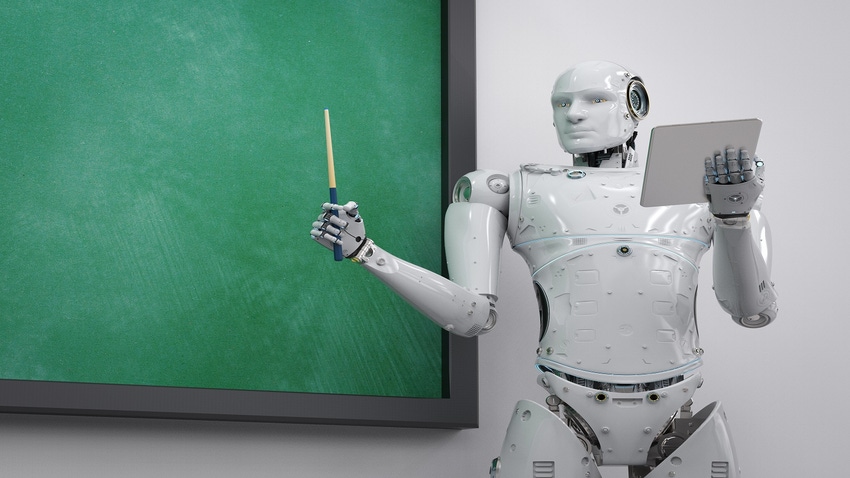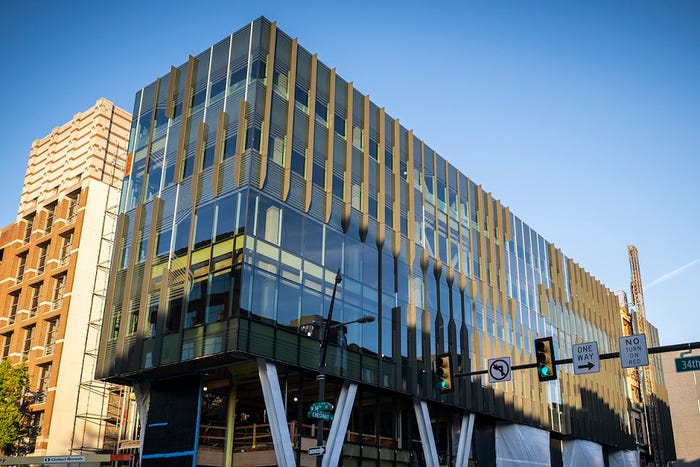Penn Engineering Launches First Ivy League Degree in AI
Penn bachelor’s in AI engineering pushes the limits on AI’s potential and prepares students to lead this world-changing technology.
February 15, 2024

At a Glance
- AI education
- AI engineering bachelor's
I guess you could say it’s about time one of the Ivy League schools smartened up about the importance of AI in engineering. It’s only been around in engineering for two or three decades. I would guess the heat of AI in the news has prompted the decisions by Penn to launch an AI bachelor’s. Or maybe it was the recognition that AI is becoming a way of life in the engineering profession.
Still, it’s good news. The University of Pennsylvania School of Engineering and Applied Science has introduced a Bachelor of Science in Engineering (B.S.E.) in Artificial Intelligence (AI) degree. The degree will be the first undergraduate major of its kind among Ivy League universities and one of the very first AI undergraduate engineering programs in the US.

Amy Gutmann Hall will open in 2024 and will be the home of the B.S.E. in Artificial Intelligence for faculty and students. Image courtesy of the University of Pennsylvania.
The Penn educators noted that AI transforming virtually every aspect of life: health, energy, transportation, robotics, computer vision, commerce, learning, and even national security. They see this creating an urgent need for innovative, leading-edge AI engineers who understand the principles of AI and how to apply them in a responsible and ethical way.
“Inventive at its core, Penn excels at the cutting edge,” said Interim President J. Larry Jameson in the announcement. “Data, including AI, is a critical area of focus for our strategic framework, In principle and practice, and this new degree program represents a leap forward for the Penn engineers who will lead in developing and deploying these powerful technologies in service to humanity. We are deeply grateful to Raj and Neera Singh, whose leadership helps make this possible.”

Raj and Neera Singh. Image courtesy of Raj and Neera Singh.
The Raj and Neera Singh Program in Artificial Intelligence equips students to unlock AI's potential to benefits. Students will be encouraged to develop responsible AI tools that can provide superhuman attention to detail, and augment humans in making transformative scientific discoveries, researching materials for chips of the future, creating breakthroughs in healthcare through new antibiotics, applying life-saving treatments and accelerating knowledge and creativity.
Raj and Neera Singh are visionaries in technology and a constant force for innovation through their philanthropy. Their funding will support the leadership, faculty, and infrastructure for the new program.
"Penn Engineering has long been a pioneer in computing and education, with ENIAC, the first digital computer, and the first Ph.D. in Computer Science," said Raj Singh in a statement. "This proud legacy of innovation continues with Penn Engineering's AI program, which will produce engineers that can leverage this powerful technology in a way that benefits all humankind.”
His wife, Neera added, “We are thrilled to continue investing in Penn Engineering and the students who can best shape the future of this field.”
Preparing the Next Generation of AI Engineers
The B.S.E. in Artificial Intelligence curriculum will offer high-level coursework in topics including machine learning, computing algorithms, data analytics, and advanced robotics.
George J. Pappas, UPS Foundation Professor of Transportation in Penn Engineering, will lead the program. “Realizing the potential of AI for positive social impact stands as one of the paramount challenges confronting engineering,” said Pappas in a statement. “We are excited to introduce a cutting-edge curriculum poised to train our students as leaders and innovators in the ongoing AI revolution.”
About the Author(s)
You May Also Like





